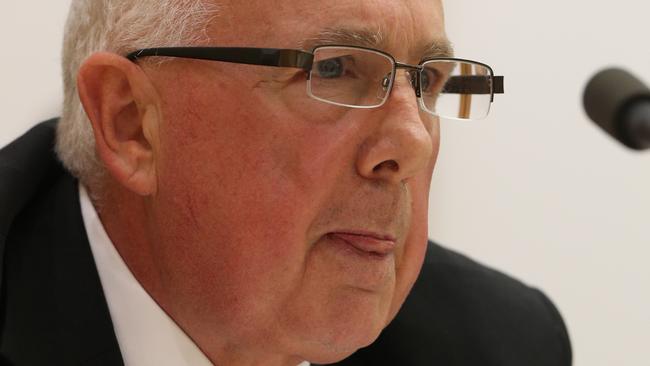COVID-19 spike in pay rise delays and dismissal claims
Fair Work president Iain Ross reveals jump in employers trying to scrap or delay paying previously agreed wage increases.

Employer attempts to scrap or delay agreed pay rises and unfair dismissal claims by sacked workers have spiked during the pandemic as enterprise bargaining goes further into retreat.
Fair Work Commission president Iain Ross said on Friday the tribunal’s caseload had jumped almost 25 per cent since March compared with the same period last year.
Unfair dismissal applications are 1901 higher, with the largest spike in April when claims were almost 67 per cent up on April 2019. General protection dismissal applications are also 11.4 per cent higher since March.
Stand-down dispute applications have significantly increased, with 228 claims made since March, compared with just 10 in 2018-19.
Justice Ross said disputes, including those arising under an enterprise agreement, had jumped 45.8 per cent, which was “symptomatic of the serious challenges facing many Australian workplaces”.
The number of enterprise agreements lodged for approval has fallen 30 per cent since March compared with the same period last year. However, the number of applications to vary agreements almost tripled between April and July.
Justice Ross said the most common variation sought was to remove or defer a scheduled wage increase, with many of these increases due to come into effect on July 1 this year.
Of the 156 variation bids, 57 sought to remove or defer a scheduled wage increase and 24 applied to extend an agreement’s nominal expiry date and insert a new later wage increase.
The data came as the commission rejected a bid by construction employers to scrap Saturday penalty rates and cut casual shifts to as few as two hours for the rest of 2020.
A commission full bench did not accept employer group submissions that the award changes were necessary to reduce the prospect of businesses being shut down due to the pandemic.
Master Builders Australia, the Australian Industry Group and the Housing Industry Association wanted the changes applied to employers not eligible to claim JobKeeper.
The commission criticised their attempt to reduce their obligations to make redundancy payments, finding employers were seeking to “cherry pick” parts of JobKeeper that benefited them.
“Far from providing job security for employees, the applicants propose variations to the redundancy provisions of the three awards in order to modify (to the detriment of affected employees) employer obligations upon termination of employment,” it said.
“This is fundamentally imbalanced in terms of fairness and contradicts the social compact inherent in the JobKeeper scheme.”
With the exception of unpaid pandemic leave and the taking of annual leave at half pay, the commission rejected the proposed variations. However, it decided to stand the proceedings over, pending further analysis of construction industry restrictions that came into operation in Victoria on Friday.
CFMEU national construction division secretary Dave Noonan said the commission had categorically rejected a cynical attempt by employers to use the pandemic to cut wages, conditions and the award safety net for construction workers.
Master Builders Australia chief executive Denita Wawn said the decision was disappointing.
“At the moment our focus is on ensuring the viability of our members, not only in Victoria but around the country, given the devastating impact of the Victorian stage-four restrictions.”




To join the conversation, please log in. Don't have an account? Register
Join the conversation, you are commenting as Logout